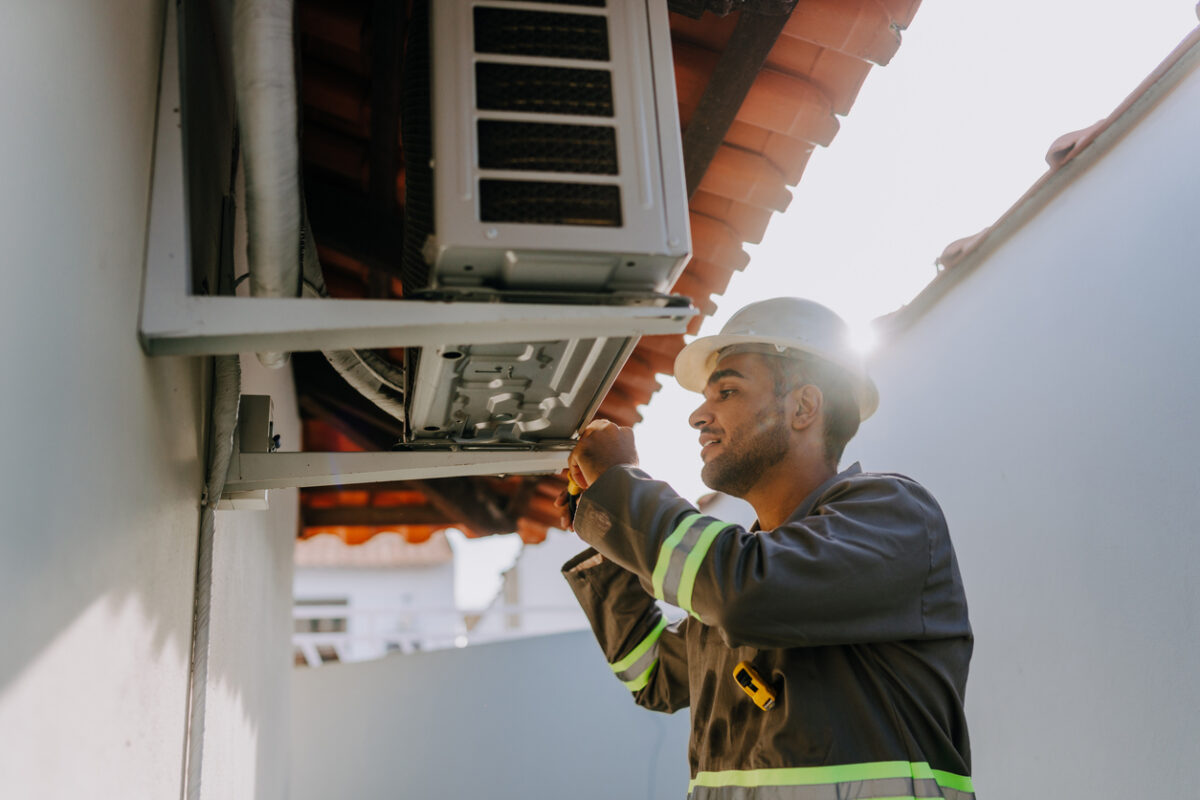Repair or Replace? Expert Advice on Making the Right Decision for Your HVAC Unit

Air conditioners last between 10 and 20 years depending on the model, maintenance, and climate. Some have long lifespans while others fail early. While there is no exact date, the time to replace your AC is based on when it needs repairs, and how serious those repairs become. Deciding whether to repair or replace your HVAC is crucial for your home’s comfort, budget, and energy efficiency. Consider new regulations like the AIM Act 2025. If you want to save time and money while ensuring reliable heating and cooling, we can help you determine the best course based on several important factors.
1. Age of the Unit
Most AC units have a lifespan of 10-20 years, with an average reliable performance of 15 years. If your AC is over 10 years old, consider a replacement rather than repairs. An AC unit loses efficiency as it ages, leading to higher energy bills and more frequent repairs. Eventually, it will be more cost-effective to replace instead of continuing repairs.
The AIM Act 2025
The AIM Act will phase out older eco-harmful refrigerants that pose global warming risks. Older ACs may become more costly if they use banned refrigerants like R-401A. If your old AC has a refrigerant leak, it may be a good time to upgrade.
2. Cost of Repairs vs. Replacement
The 50% rule states that if a repair costs 50% or more of the cost of a new appliance, then replacement is the wise choice. You will get better performance from a new unit, so the other half of the price will pay itself back quickly compared to the lost expense of repairing a unit that will continue to fail and need more costly repairs in the future.
With the AIM Act, you can also be certain that HVAC replacements in 2024 will all be manufactured with eco-friendly refrigerants. An upgrade will be good for the environment, more efficient, and cheaper for many years.
3. Energy Efficiency and Your Utility Bills
How energy-efficient is your old HVAC unit? HVACs have to use more electricity for heating and cooling as the years go by. A steady increase in your seasonal power bills can mean your HVAC will cost more than you realize. Repairing an older unit may come with that half-hidden higher cost of continued operation.
Upgrading to a more efficient new HVAC comes with advanced technology, a higher SEER (Seasonal Energy Efficiency Ratio) rating, and lower power bills. With the AIM Act, newer systems also use low-GWP refrigerants, making them eco-friendlier and more efficient, leading to lower utility bills.
4. Frequency of Breakdowns
Constant repairs are a sign that your AC will continue to fall. If repairs are more than once a year, it’s probably time to schedule your HVAC replacement. The AIM Act phase-down also means it will become more costly to service older units with phased-out refrigerants.
5. Indoor Comfort and Air Quality
An older HVAC may struggle to keep up with your home’s air needs. If you notice hot and cold spots, the blower fan or motor fails to push enough air evenly through the house. If you notice poor air quality, it could mean a failure of filtration or humidity control.
A newer system that meets the AIM Act standards provides advanced efficiency and environmental controls. You can ensure perfect air balance and reduce pollutants and allergens in your home.
6. Environmental Impact and AIM Act Compliance
The AIM Act 2025 ensures that new HVAC units are more eco-friendly than older models by phasing out high-GWP refrigerants. New systems will reduce your carbon footprint with eco-friendly refrigerants and more efficient electricity use.
7. Current Rebates and Incentives
If now is the right time to replace your HVAC, several great savings opportunities are available. Many utility companies offer rebates, discounts, and other incentives for purchasing a new high-efficiency AIM Act-compliant system. You can use these savings to reduce the upfront costs of your energy-saving upgrade. This is a chance to reduce installation costs and start saving immediately with lower seasonal power bills.
Making the Best Choice for Your Home
Should you repair your HVAC or plan to replace it? Consider your system’s age, repair frequency, seasonal power bills, and your current home comfort. If now is the right time to replace, take advantage of the savings and quality upgrades inspired by the AIM Act 2025, which drives eco-friendly and energy-efficient changes in the HVAC industry.
Contact us today for a consultation on your HVAC repair or replacement needs.












